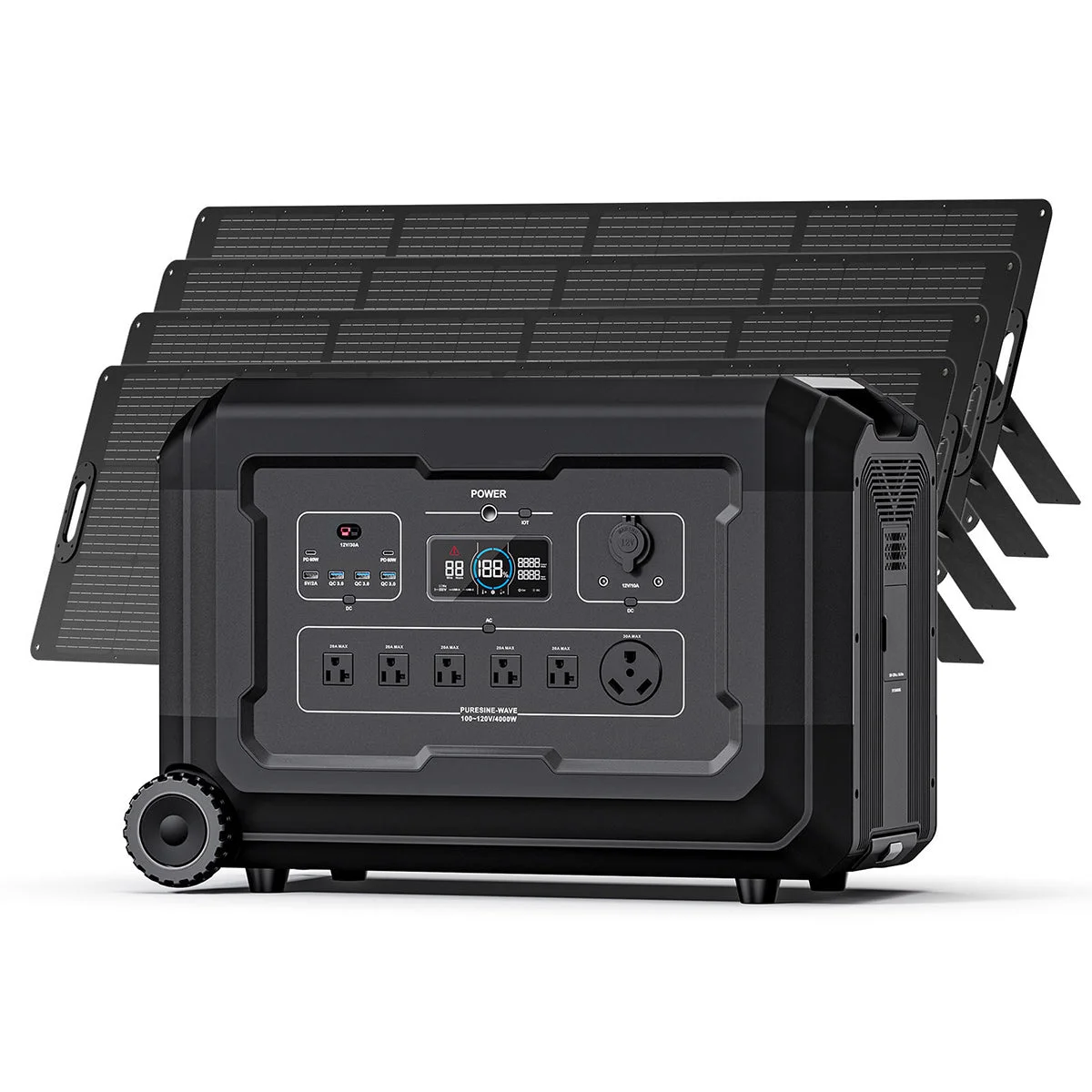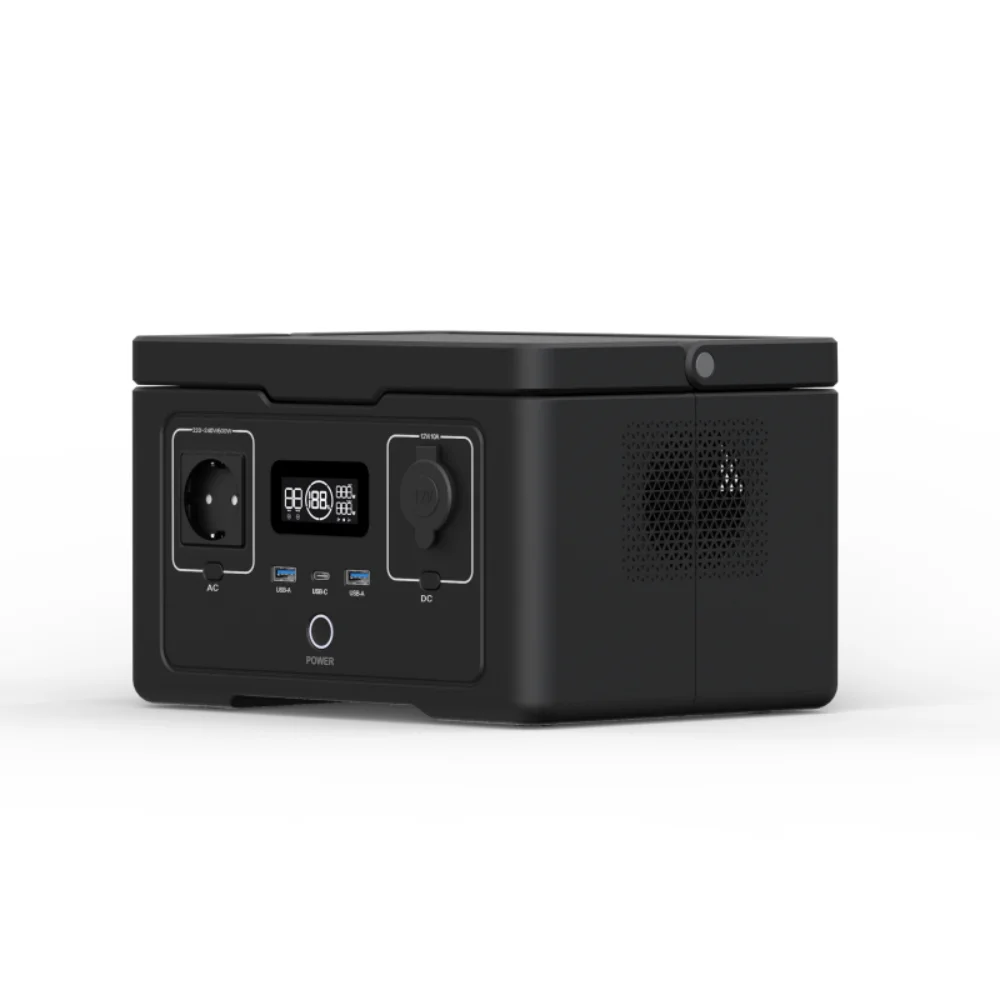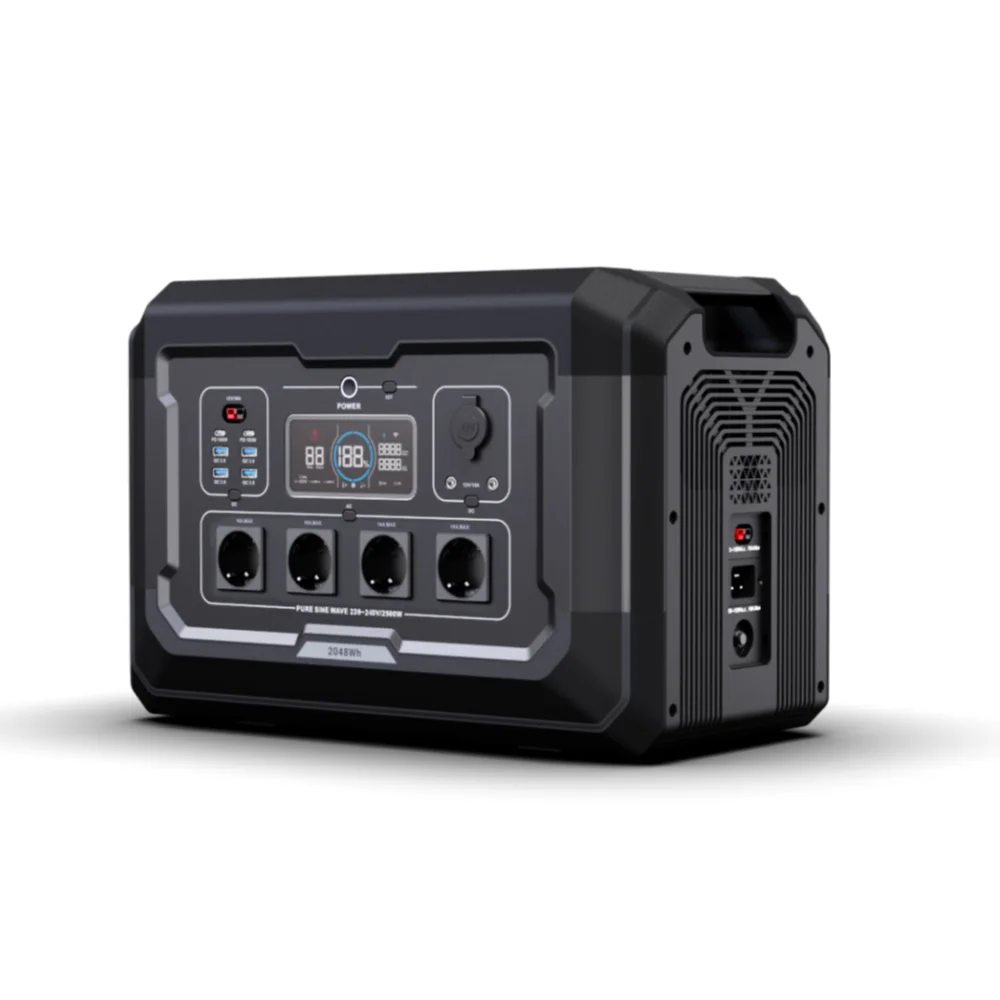How do solar generators perform on boats? It's an interesting question!
Benefits of Solar Generators for Marine Use
Renewable Energy Source for Off-Grid Boating
Solar generators offer an eco-friendly power solution for off-grid boating by utilizing sunlight as a renewable energy source. Unlike traditional systems that rely on fossil fuels, solar generators reduce the carbon footprint significantly. This aligns with broader environmental goals, as seen in IRENA's report, which states the transition to renewable energy could reduce greenhouse gas emissions by 70%. By integrating solar generators on boats, we contribute to marine conservation and ensure a sustainable boating lifestyle.
Quiet Operation Compared to Traditional Generators
One of the most appealing features of solar generators is their silent operation. In contrast to the often loud and disruptive traditional gasoline generators, which can exceed 60 dB, solar generators typically function at near-zero dB. This quietness enhances our boating experience by eliminating noise pollution and attracting wildlife, thus offering a serene environment for nature enthusiasts. Being able to enjoy the tranquil sounds of the water and surroundings without the constant hum of a generator is a significant advantage.
Portability and Space-Saving Designs
Solar generators are designed for easy transportation and setup, making them ideal for marine environments where space is at a premium. Their lightweight and compact designs maximize available space on small boats, allowing for greater mobility and storage efficiency. In addition, the modular nature of these generators means we can combine multiple units to increase power without a significant footprint, thus providing a flexible and scalable energy solution for varying energy demands.
Low Maintenance Requirements
One of the key benefits of solar generators is their low maintenance demands compared to traditional marine engines. With fewer moving parts, solar generators experience less wear and tear, ultimately reducing upkeep costs and improving reliability. Solar panels can last over 25 years with minimal care, underscoring their long-term sustainability and cost-effectiveness. By opting for solar energy systems, we not only lighten our maintenance burden but also embrace a more dependable power source that supports our boating adventures over the years.
Challenges of Marine Solar Generator Systems
Weather Dependency and Power Consistency
One significant challenge of marine solar generator systems is their weather dependency, which can lead to inconsistent power generation. Solar energy production relies on sunlight, meaning overcast or rainy days can substantially decrease output. This variability can affect the availability of necessary power for daily operations on board. According to a study by the National Oceanic and Atmospheric Administration (NOAA), solar efficiency can drop by as much as 50% during unfavorable weather conditions. Therefore, boaters must anticipate and manage these power fluctuations to meet their energy needs reliably.
Initial Investment vs Long-Term Savings
While the upfront cost of high-quality solar generators can appear daunting, it is essential to consider long-term savings that can significantly offset these initial expenses. For some boaters, these upfront costs are a barrier to entry. However, over time, users can recoup their investment through savings on fuel and maintenance. A detailed cost analysis often reveals that the investment pays off within 3 to 5 years, primarily due to the reduction in ongoing operational costs. This long-term financial benefit is a persuasive argument for eco-conscious boaters who seek sustainability alongside economic efficiency.
Saltwater Corrosion Risks
Another critical challenge is the risk of saltwater corrosion, which can shorten the lifespan and efficiency of solar generators if they're not explicitly designed for marine environments. The corrosive nature of saltwater can degrade the materials and components over time, especially if they lack adequate protection. To ensure longevity and reliability, it's imperative to select marine-rated products crafted from corrosion-resistant materials. By incorporating these protective measures, boaters can safeguard their solar generators, ensuring they maintain performance and durability amidst the harsh marine environment.
Top Solar Generator Options for Boats
5000W Emergency All-in-One Solar Generator
The 5000W Emergency All-in-One Solar Generator is designed to cater to high energy demands, particularly during emergencies, making it ideal for larger vessels requiring considerable power. This robust generator integrates multiple features such as solar charging, battery storage, and inverter capabilities, providing comprehensive functionality in one convenient unit. Performance data shows that this generator can fully power a small household for several hours, highlighting its reliability and efficiency.
600W Portable LiFePO4 Battery System
The 600W Portable LiFePO4 Battery System is lauded for its lightweight design, prioritizing mobility and making it perfect for weekend boaters who require versatility and transportability. Its lithium iron phosphate (LiFePO4) batteries offer remarkable longevity and are less likely to overheat compared to traditional battery types. Consistently high user reviews emphasize its durability and robust performance, which are vital when out on open waters.
2048WH Outdoor Solar Power Station
Boasting a significant capacity, the 2048WH Outdoor Solar Power Station is engineered to support several devices simultaneously, rendering it an optimal choice for extended maritime journeys. With its numerous output ports, it is versatile enough to accommodate a range of marine appliances. Comprehensive analyses demonstrate its ability to sustain continuous power for over 24 hours under optimal solar conditions, thus providing assurance of energy consistency on long voyages.
Key Features for Marine Solar Solutions
Waterproof Ratings and Durability
Selecting solar generators with high waterproof ratings, such as IP65 or higher, is essential to ensure equipment functionality against adverse weather in marine environments. Durable materials, resistant to corrosion and physical impacts, are vital for long-term performance on the water. According to market data, investing in systems with robust construction reduces the frequency of replacements and maintenance significantly, making these features indispensable for reliable operation.
Battery Capacity vs Energy Needs
Balancing battery capacity with daily energy consumption is crucial for effective power management on a boat. Determining the total watt-hours needed for essential devices helps in choosing the right battery size. Experts recommend maintaining an additional capacity buffer to accommodate energy fluctuations, ensuring uninterrupted power supply even when solar energy intake varies due to weather conditions.
Solar Panel Efficiency in Marine Environments
For marine environments, solar panels should have high efficiency to convert available sunlight into energy effectively. Higher-efficiency panels enable maximizing power output from the limited installation space commonly available on boats. Reports indicate that while average panels boast efficiencies around 15-20%, specific marine panels achieve efficiencies as high as 23%, offering a significant advantage in harnessing solar power amid ocean conditions.
Installation and Maintenance Tips
Optimal Placement for Sun Exposure
Optimal sun exposure is crucial for maximizing the performance of solar panels on boats. Positioning the panels to face the sun ensures that they capture as much sunlight as possible, which enhances their power generation capabilities. Adjusting the angle of the panels seasonally can further boost efficiency, as the sun's path changes throughout the year. In marine applications, experts suggest a tilt angle between 30 to 45 degrees is ideal. Implementing these strategies can significantly improve solar power output, making boating experiences more enjoyable and sustainable.
Cleaning Salt Residue from Solar Panels
Regular maintenance, including cleaning salt residue from solar panels, is vital for maintaining their efficiency. Salt build-up can obstruct sunlight, reducing power generation performance. Therefore, it's recommended to clean the panels every few weeks, especially in salty marine environments. It's essential to use non-abrasive methods to clear away the residue without damaging the solar panel surface. Consistent cleaning helps ensure continuous productivity and extends the lifespan of solar equipment, preventing costly replacements.
Winter Storage Considerations
Winter storage of solar equipment demands careful planning to avoid damage and ensure longevity. Proper storage practices include removing batteries and keeping them at moderate temperatures to prevent performance degradation during the colder months. Consulting the manufacturer's guidelines is advisable as they provide tailored recommendations for optimal protection of solar equipment during winter. By following these considerations, users can ensure their solar gear remains in excellent condition, ready for use when boating resumes in the warmer seasons.
 EN
EN
 AR
AR FR
FR DE
DE IT
IT PL
PL PT
PT RU
RU ES
ES SW
SW HA
HA



